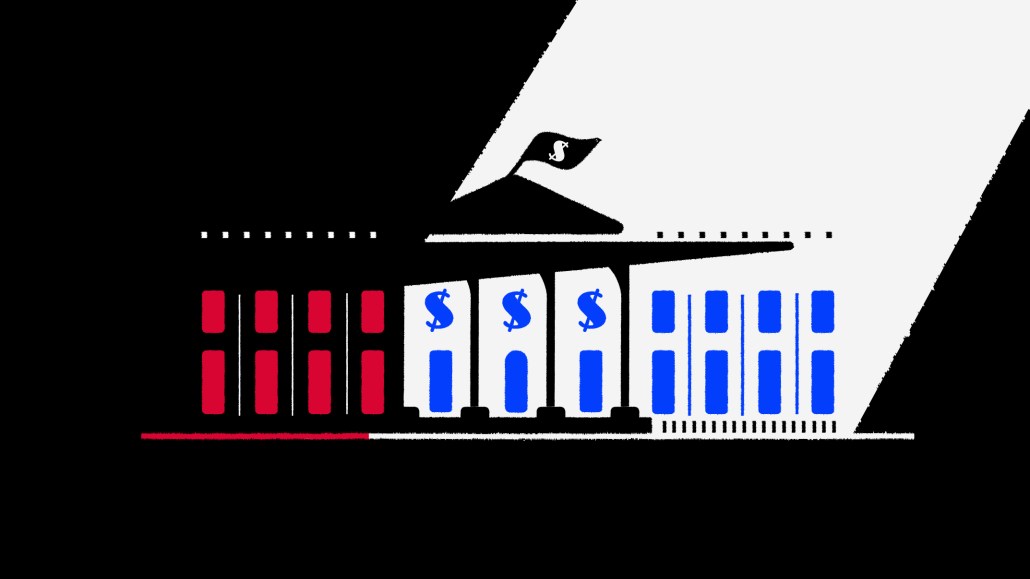Secure your place at the Digiday Media Buying Summit in Nashville, March 2-4
Election Day tensions so high some employers grant remote work week

This story was first published by Digiday sibling WorkLife
In the months leading up to the U.S. presidential election, managers have reported increasing incivility in the workplace over politics — so much so that many are having staff work from home on Election Day, and even election week — with an immediate outcome unlikely.
Four in 10 managers will have staff work remotely during election week, according to a new survey from ResumeBuilder among over 1,000 U.S.-based managers. About 30% say the election has caused conflicts among employees, and 70% fear tensions will escalate post election, that survey found.
Managers are dealing with strained relationships, verbal altercations, and ultimately, a decrease in team cohesion. They say disagreements over politics are distracting employees and reducing overall output. About a fourth of staff have refused to collaborate with coworkers holding different views, and have asked to work remotely as a way to avoid potential conflict, according to that report.
ASTRSK, a boutique agency with 20 employees and an office in downtown Manhattan, plans to close its office on Tuesday and Wednesday, and allow staff to work from home. Staff work on a hybrid schedule, typically coming in on Tuesdays and Thursdays.
“We’ll kind of see what happens next week, and if we’ll even be coming on Thursday or not,” said ASTRSK president, Lisa Horton.
Many of the agency’s staffers are millennials or Gen Zers who are vocal and passionate about social issues. “This is just very clearly the most politically, socially, economically charged presidential election in our lifetime, let alone possibly ever. And we really want them to feel like they can be where they need to be, whether that’s creating a safe space for themselves or being with friends or family or whatever it is that they need based on the election outcome,” Horton said.
“We tend to always have like-minded people that are working together at the agency, so I think naturally there’s an environment and a culture where people feel safe to kind of express those opinions,” she said. “So no one has necessarily felt unsafe to come into work or anything like that, but it’s more so about really protecting everyone’s mental and emotional space.”
To read the full story over on WorkLife click here
More in Media

Digiday+ Research: Dow Jones, Business Insider and other publishers on AI-driven search
This report explores how publishers are navigating search as AI reshapes how people access information and how publishers monetize content.

In Graphic Detail: AI licensing deals, protection measures aren’t slowing web scraping
AI bots are increasingly mining publisher content, with new data showing publishers are losing the traffic battle even as demand grows.

In Graphic Detail: The scale of the challenge facing publishers, politicians eager to damage Google’s adland dominance
Last year was a blowout ad revenue year for Google, despite challenges from several quarters.








